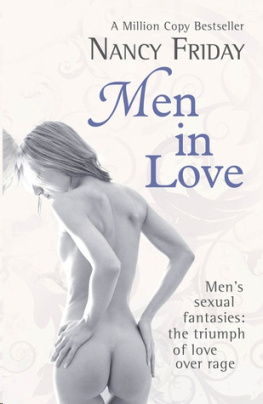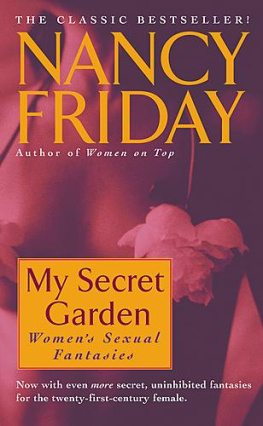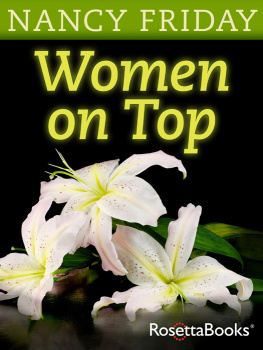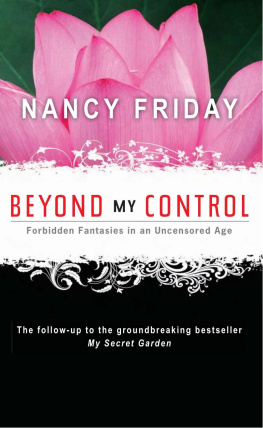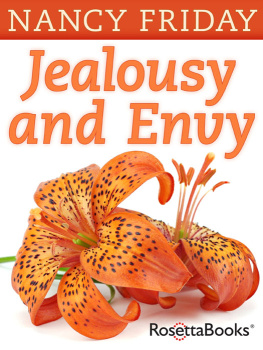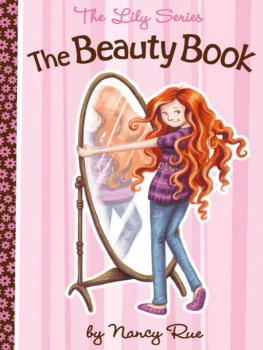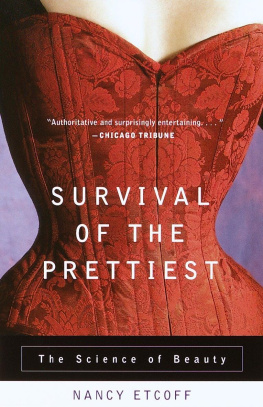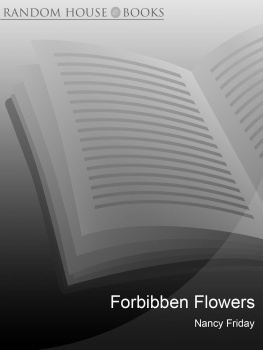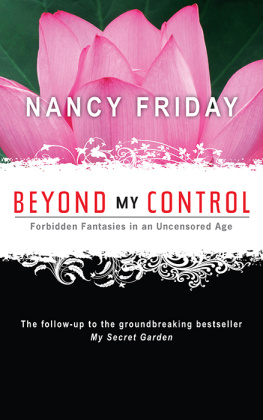Nancy Friday - The Power of Beauty: Our Looks, Our Lives
Here you can read online Nancy Friday - The Power of Beauty: Our Looks, Our Lives full text of the book (entire story) in english for free. Download pdf and epub, get meaning, cover and reviews about this ebook. year: 2014, publisher: RosettaBooks, genre: Romance novel. Description of the work, (preface) as well as reviews are available. Best literature library LitArk.com created for fans of good reading and offers a wide selection of genres:
Romance novel
Science fiction
Adventure
Detective
Science
History
Home and family
Prose
Art
Politics
Computer
Non-fiction
Religion
Business
Children
Humor
Choose a favorite category and find really read worthwhile books. Enjoy immersion in the world of imagination, feel the emotions of the characters or learn something new for yourself, make an fascinating discovery.

- Book:The Power of Beauty: Our Looks, Our Lives
- Author:
- Publisher:RosettaBooks
- Genre:
- Year:2014
- Rating:3 / 5
- Favourites:Add to favourites
- Your mark:
- 60
- 1
- 2
- 3
- 4
- 5
The Power of Beauty: Our Looks, Our Lives: summary, description and annotation
We offer to read an annotation, description, summary or preface (depends on what the author of the book "The Power of Beauty: Our Looks, Our Lives" wrote himself). If you haven't found the necessary information about the book — write in the comments, we will try to find it.
The Power of Beauty: Our Looks, Our Lives — read online for free the complete book (whole text) full work
Below is the text of the book, divided by pages. System saving the place of the last page read, allows you to conveniently read the book "The Power of Beauty: Our Looks, Our Lives" online for free, without having to search again every time where you left off. Put a bookmark, and you can go to the page where you finished reading at any time.
Font size:
Interval:
Bookmark:
Our Looks, Our Lives
Nancy Friday
Copyright
The Power of Beauty: Our Looks, Our Lives
Copyright 1996, 2013 by Nancy Friday
Cover art, special contents, and Electronic Edition 2013 by RosettaBooks LLC
All rights reserved. No part of this book may be used or reproduced in any form or by any electronic or mechanical means, including information storage and retrieval systems, without permission in writing from the publisher, except by a reviewer who may quote brief passages in a review.
Cover jacket design by Alexia Garaventa
ISBN Mobipocket edition: 9780795335204
For Patricia Colbert Robinson
It is, in the final analysis, love which transforms even ugly things into something beautiful.
B RUNO B ETTELHEIM
The Uses of Enchantment, 1976
The Prince, the Minstrel, the Tailor, the Wedding: A Musical! Produced by the Girl I Left Behind
A book is a journey, or as Bruno Bettelheim might put it, a quest filled with trials and tests. Five very special people helped me past the many obstacles along the way:
Dick Duane was the muse to whom I spoke each morning. His gift is knowing how to talk to writers. His words gave me courage when I needed it most.
Diane Reverand, my editor, always saw this book in that way I use this most significant verb, freeing me to find myself.
Julie Roth, my splendid researcher, was the finest gatherer of clues, solver of riddles, and best companion a writer could ask for.
Caroline Fireside was the Wise Woman who, if you are lucky, you meet on the road. She saw many of the dragons before I did and knew the paths around them.
The Gaze
I am a woman who needs to be seen. I need it in a basic way, as in to breathe, to eat. Or not to be seen, that is the other increasingly attractive option, to give up the lifelong preoccupation of finding myself in others eyes, the need to be taken in so that my existence is noted.
Ambivalence explains so much of life. As in, I love you, I hate you. As in, how much to show, how much to let another see of ones needs, ones naked self. What bliss to show all and be adored; what agony to be judged, then abandoned after having revealed so much of ones fragile self. Better to show nothing. But then, who would have seen us?
Do we begin life all open? Is ambivalence born of little rejected bits of the exposed self? Once, long ago, we were naked. We lovedno, love is learnedwe needed the first eyes, the arms that took us in. Did they love what they saw? We cant remember and so we stand at the mirror, unbuttoning the top button, inviting the eye, and then buttoning back up, playing it safe. But love is not safe; when we fall in love every button is undone, the risk of rejection taken. These eyes that look at us promise adoration. Of course we save our hottest rages for the people we love the most. How dare they take their eyes off us after all weve shown them? We love them, we hate them. High ambivalence. Arent the first suspects in a murder always those who are the nearest and dearest?
Ambivalence certainly explains my frame of mind regarding the influence I am willing to give external mirrors. I take it very seriously indeed, what it would mean to shed the baggage that has weighed me down all my life, others opinions, the way they see me. And, quite literally, to travel with one small suitcase, my promise to my husband.
You are already thinking that this is not about you, who are not a clotheshorse or a starer into mirrors. Perhaps you have already begun to disdain my vanity. But your life has been as fashioned by mirrors as mine; none of us escapes the influence that our looks have had on our lives. Later we may choose to live without mirrors, but we begin life very much in need of reflection. Did you begin rich or poor, seen as the Christ Child or left, invisible, to make yourself up?
Perhaps you ducked out of the competition over looks so many years ago that you cant remember. But once you did want to be seen, taken in, and loved. If you dont today, consider that it might be because you tried and lost. Lost to your brother or sister; maybe got lost in the abyss of invisibility, a parent demanding that all eyes be on her or him. Who wants to remember such pain? Perhaps, instead, you won and were hated for it. Envy can be a killer.
The universal power of looks is free-floating, an electrical charge between hungry eyes and the objects of their desire: Let me feast my eyes on you. Let me take you in. It is an open market, traded on more exhibitionistically today than at any time in my life. Near-naked bodies demand our attention on the streets, undressed fashions fill the restaurants, the television screens in our living rooms: Look at me!
Those of us who are old enough remember a world that prized invisible virtues such as kindness, generosity, empathy, which are out of fashion today. Now we wear our identities on our backs. Who cares about invisible values? See me or I wont even know I exist. Ours is the age of The Empty Package. Vanity is all. You are part of this story, believe me.
In the beginning, loveliness is all. The more drawn a mother is to her child, the greater the likelihood that the child will survive. The more consistently the infants needs are met, the more beautiful and good the mother. To each, the other is perfect. When that face is present, life is sustained; absent, there is no warmth, no love. What does the infant know of standards of beauty, or the good mother care? The child may be too fat or too thin, the mother plain, but when I remember the early Renaissance artists golden beam painted between their eyes, joining their gazes, they were flawless. When you and I take in that ancient idealization, painted in countless variations by as many artists, we recognize what we once had and lost, or longed for all our lives.
We never outgrow our affinity for what is conveyed in the luscious paintings of mother and child, the most compelling of which I feel to be circular and cinematic in composition, belly round, affording a keyhole through which one spies and feeds on the intimacy of others. And there is that equally heartbreaking icon of the Piet, Mary holding the dead Christ, her Child, in her arms, His head once again on her breast. There was a man who was jailed several years ago for desecrating that particular sculpture, hacking it with his rock hammer because, he is said to have told the authorities, Mary isnt looking at Him! Indeed, Christs mother stares downward, her gaze not on His face.
Those Madonna and Child images were, in fact, my least favorite when I was a young art historian; I preferred the cool asymmetry of the post-Renaissance mannerists to Raphaels passionate equilibrium. Not for me someone elses blissful infancy; anyone who had what I had missed, even the divine Mother and Child, aroused envy. The irony is that the simple golden beam linking their gazes has stayed with me far longer than anything I can recall from the mannerists. Twenty years ago, when I was writing My Mother/My Self, it swam up from my unconscious as the perfect picture of earliest mother love, The Gaze captured in a beam of light remembered from a college art class when I was still too young and vulnerable even to let myself know how deeply moved by it I was. Here, within the context of looks and the need to be seen, it is even more apt.
The Gaze is where it all begins. Soon after we can see, we are aware that we can also be seen, writes art critic John Berger. The eye of the other combines with our own eye to make it fully credible that we are part of the visible world. You and I required that loving focus early on. Our infantile selves cried out for the nonjudgmental mirror of adoring eyes in which we saw ourselves reflected, warmed, taken in, and rolled lovingly around, then returned via The Golden Beam to be stored inside, the self at rest within the self. This is the beginning of self-esteem.
Font size:
Interval:
Bookmark:
Similar books «The Power of Beauty: Our Looks, Our Lives»
Look at similar books to The Power of Beauty: Our Looks, Our Lives. We have selected literature similar in name and meaning in the hope of providing readers with more options to find new, interesting, not yet read works.
Discussion, reviews of the book The Power of Beauty: Our Looks, Our Lives and just readers' own opinions. Leave your comments, write what you think about the work, its meaning or the main characters. Specify what exactly you liked and what you didn't like, and why you think so.

